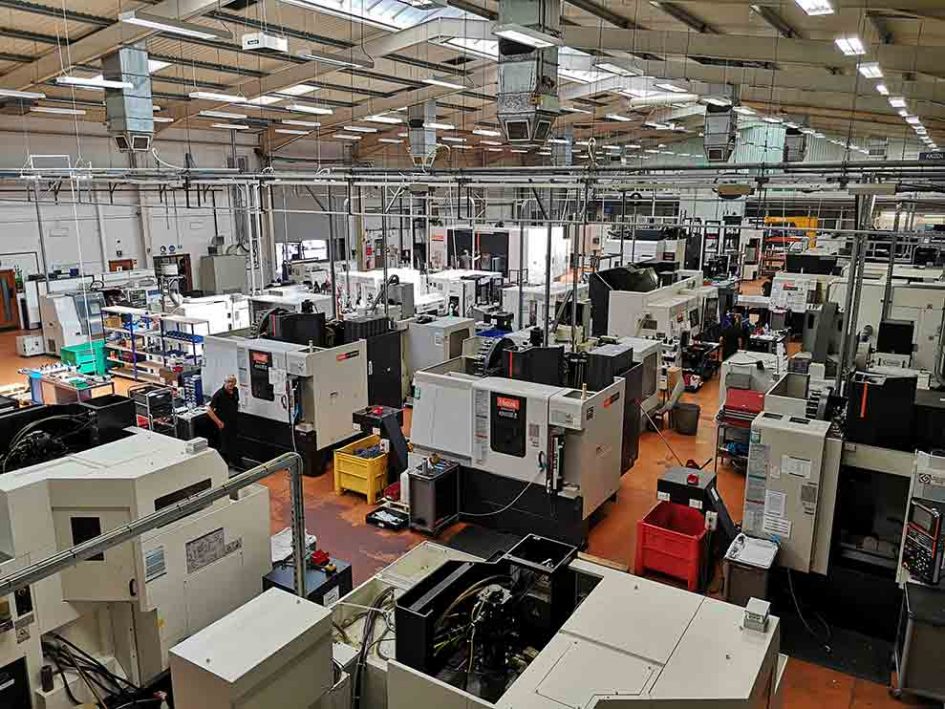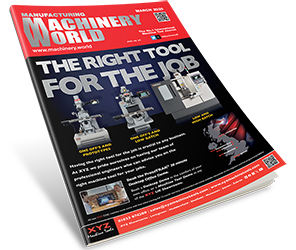Almost 75% of SME manufacturers supported by Made Smarter with digitalisation are putting data and systems integration at the heart of their productivity and growth plans.
Of the 84 businesses that have received funding through the North West Industry 4.0 adoption pilot 61 embraced industrial digital technologies which connect their disparate systems and unify data residing in different sources.
Integrating a variety of systems and consolidating data sources allows business leaders to spot trends in production and labour, correct maintenance and quality issues, and minimise safety, business risk and operational downtime throughout their production. The benefits of these can be seen in the entire supply chain eco-system.
SMEs from various manufacturing sectors have invested in other advanced technologies to solve their business challenges. Almost 25% (20) of manufacturers are adopting Industrial Internet of Things (IIoT) using sensors to collect critical production data to gain valuable insights about the efficiency of operations. More than 20% (17) of SMEs are adopting robotics and process control automation and 15% (13) are focussed on big data and analytics technologies. Meanwhile, other businesses are investing in 3Dprinting (6), artificial intelligence (2), augmented and virtual reality (5), and cyber security (2).
Donna Edwards, programme director for the Made Smarter North West, said: “Data and analytics are central to the 4th Industrial Revolution, so I am extremely pleased that so many SME manufacturers are putting data at the heart of their own digitalisation journeys.
“Capturing the data from across their processes and bringing it all together in one place is a vital first step for many manufacturers looking to solve problems and recognise opportunities. Simultaneously, many of these SMEs are also deploying sensors in their factories to collect valuable data.
“The next step, one which some forward-thinking SMEs are already taking, is to analyse the data using artificial intelligence (AI) and machine learning.
“It is encouraging that so many of this region’s makers are recognising that using these tools can empower them to grow their business and increase efficiency.”
Among those 61 businesses using data and systems integration technologies to achieve digital transformation and gain a competitive edge include Playdale Playgrounds, based in Cumbria, Plastic Card Services, based in Cheshire, and T&R Precision, based in Lancashire.
Playdale, a play equipment manufacturer based in Ulverston, is fixing sensors to a traditional drill to capture real-time performance and predictive maintenance data which will be analysed to understand the savings from improved efficiencies, reduced down-time, tooling-spend and maintenance costs. It will then be replicated across its other legacy equipment such as saws and presses.
Paul Mallinson, Technical and Operations Director, said: “This project will pave the way for the integration of the remainder of our work production cells, in addition to the creation of totally digital workflow from initial enquiries through to delivery, installation, customer acceptance and on-going support. It’s an exciting time for Playdale.”
Plastic Card Services (PCS), based in Macclesfield, invested in a bespoke solution that can read a card, check against a data file in real time, and then encode it, while a new software solution interrogates its customer’s database for the personalised data for the card and organise print jobs for the day.
The investment resulted in a new contract worth £500,000 each year for the next three years and an 8% increase in turnover, as well as additional enquiries for similar contracts.
Adam Unsworth, Managing Director, said: “Quite simply, without funding through Made Smarter for the new equipment, PCS would not have been able to win the contract. The increase in turnover is huge for us. It’s a game-changer for our company.”
T&R Precision, an engineering company operating in the aerospace sector based in Foulridge, invested in a bespoke solution to fully automate a machining system by applying new software and hardware solutions to a 5-axis CNC machine. It is integrated with the quality control department, provides real time oversight to the management team and allows every order to be tracked and integrated into the supply chain.
The solution reduces the manufacturing process from 90 hours to 18, increases productivity levels and is forecast to increase revenue by 33% over the next three years.
Tim Maddison, managing director, said: “A unique, ‘future state’ manufacturing method will provide us with a significant competitive advantage over our principal customer’s in-house manufacturing processes. It will reduce the number of operations, machines and manpower required to manufacture the components, providing a step change in our productivity and efficiencies. The investment and support of Made Smarter will create stability for the company and workforce and give us the confidence to invest in the future.”







